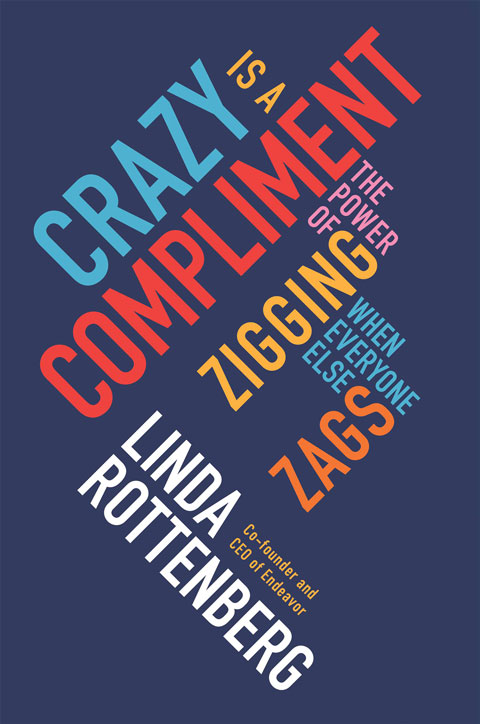
Crazy. Nutty. Cuckoo. Mad. Insane. If you’re an entrepreneur, get cozy with these terms — at least according to Linda Rottenberg, Cofounder and CEO of Endeavor, a nonprofit dedicated to supporting high-impact entrepreneurs. In her new book Crazy Is a Compliment, she outlines how being a maverick and taking risks is the key to success. “If you’re not called crazy when you launch something new, it means you’re not thinking big enough,” she writes. Some prime examples proving her point include Walmart’s Sam Walton, the founders of Xbox and professor Raymond Damadian, the inventor of the MRI, all of whom were mocked for their ideas; Damadian was even denied tenure.
But there’s a difference between taking a risk and taking a smart risk. The best entrepreneurs, Rottenberg explains, “Don’t risk it all; they risk just enough to get going.” So how does one figure that out and recognize the good risk from the bad? Here, a few pointers from her book.
Don’t Bet the Farm
Even Virgin Group’s Richard Branson isn’t a go-all-in sort of guy. “Make sure a single failure won’t ruin everything,” he advises. Rottenberg notes that in her research with Endeavor entrepreneurs, 95 percent said they didn’t risk their abilities to provide for their families when starting their businesses. What you should risk, she recommends, is “just enough to get you into the game…. The smarter approach is to take incremental steps, get feedback and adjust.”
Friends Don’t Let Friends Test-Drive Their Ideas
Conventional wisdom dictates that you should run your ideas by those closest to you, right? After all, they know you, know what you’re about, you value their opinions…. Rottenberg warns against that. “Your loved ones are likely to greet your idea in one of two ways, neither of which is all that helpful to you,” she writes. “For some, it will be mindless flattery…. For others, it will be negative: ‘You’re thinking of quitting your job to do WHAT?'” Focus on people who will actually give you candid feedback, not an answer guided by their emotion for you.
Follow the Crowd
Leverage the age of the internet. Crowdsource and crowdfund to test your idea, and get market feedback, in a cost-effective way.
The Lost Art of Stalking
That’s right, stalking. A certain amount of chutzpah is just as important as capital. Rottenberg tells the story of how Estée Lauder, at the start of her career, would stop “women on trains, in elevators, at the market” and ask them to try her skin cream. The would-be beauty powerhouse even stalked the cosmetic buyer at Saks Fifth Avenue — who promptly told her no. But that didn’t stop Lauder. At a charity luncheon, she gave away tubes of lipstick, wrapped in metallic (not the then-prevalent plastic) sheaths, and told women they could buy them at Saks. When the ladies lined up at the counter demanding her product, well, the store placed an order the very next day.
For more of Rottenberg’s entrepreneurial advice, including her road map to scaling a startup and and how to live like an entrepreneur with a healthy work/life balance, read Crazy Is a Compliment.
